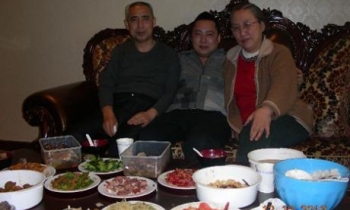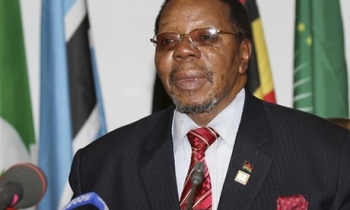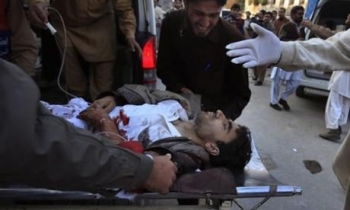SAN JOSE, Calif. (AP): Deteriorating security in Iraq has made it much more difficult to provide the news coverage Americans need to understand the war and reconstruction efforts, several journalists said Friday.
As the military death toll rises, the media also is under pressure from critics in the United States to cover the "good news" of the U.S.-led reconstruction efforts, the journalists noted as part of a panel at the Associated Press Managing Editors conference. But the schools, hospitals and other projects being rebuilt with American money often are inaccessible to reporters in Iraq, they said.
Tony Castaneda, now working in Baghdad for the AP, said he's also troubled by the media's inability to cover Sunni-dominated areas where the Iraqi insurgency is brewing.
"It's nearly impossible for us to get in there and I would argue that nobody has a real understanding of where the Sunni Arab population is right now" politically, he said.
That thought was seconded by other panelists -- investigative reporters Seymour Hersh, whose book "Chain of Command" details the Abu Ghraib scandal, and Kevin Begos, who has reported on U.S. reconstruction efforts for the Winston-Salem (N.C.) Journal.
Both said the media has done a poor job of explaining what's going on in Iraq -- and both blamed Bush administration secrecy, along with the lack of security for journalists in Iraq, where at least 57 reporters and 22 support staffers have been killed since March 2003, according to the Committee to Protect Journalists.
"The thing we've done the poorest job on is really giving the Iraqi perspective of what's happened over the last two years. People who once welcomed us are much more suspicious now," Begos said.
"In past conflicts, reporters could for the most part move around," he added. "It's a whole different set of realities in Iraq that make it so much harder for journalists. There's such a mix of emotions and things happening and we're not getting the full feed of that. It must be confusing for readers."
Hersh described a "perfect trifecta" of problems as the conflict unfolds -- an Iran-friendly Shia regime in the south that is hostile to Sunni-led Arab governments in nearby countries, an independence-minded Kurd region in the north that may go to war with Turkey, and a war of attrition in the center of Iraq.
"The exit plan is really simple, folks -- you're going to see fewer troops and more bombs," Hersh said. "We don't control anything outside the Green Zone," the fortified district of Baghdad where most non-Iraqis stay.
Hersh also predicted that the new Iraqi constitution practically guarantees civil war.
"The religions and ethnic divisions there are not only deep and complicated, we don't know much about them, and we have to learn about them if we're going to be involved in the country, particularly as it breaks up," he said.
Joining the journalists on the panel was Erik Duane, a Marine reservist who served in Iraq. He said coverage of reconstruction efforts was "pretty much nil" during his first tour. After hearing from his fellow panelists, he said, "I can foresee the challenges we face when I go back next year."
AP Executive Editor Kathleen Carroll said the AP aggressively tries to track progress in Iraq, and urged editors to "resist this desire for only one kind of news" about the conflict.
"While it's true that power is being restored and schools are being painted and progress is being made" in parts of the country, "it's also true that Baghdad is pretty much still a sinking hellhole of violence," Carroll said. "What we have to resist is the idea that there's only one truth about a place like Iraq."
Another panel concluded that newspapers must enlist readers in the cause of maintaining transparency in government by better explaining situations where public officials operate in secret.
"Once the citizenship understands the kind of backroom dealing that's going on, they'll become more vocal," said David Ledford, executive editor of The News Journal in Wilmington, Del.
Newspapers also need to respond to their communities' hunger for news of other countries, another panel concluded. Ties between Yakima County, Wash., and Morelia, Mexico, are so close, for example, that there are streets in Morelia named for Yakima county towns, said Sarah Jenkins, editor of the Yakima (Wash.) Herald Republic.
"It's very common ... a cousin comes and then the next cousin comes, and the connections remain," said Jenkins. "I wonder how many editors have gotten involved with their local communities enough to ask where exactly their people come from."
Earlier Friday, AP Managing Editor Mike Silverman and other AP executives described how the news service is increasingly teaming up writers, photographers and video crews to present stories in all formats.
"We think this is good for all of our journalism," Silverman said. "As AP reporters and photographers get serious about working in the online world, we find them stretching and growing in ways they themselves would never have imagined, and this is benefiting newspapers as well."
The Associated Press is the world's oldest and largest newsgathering organization, providing content to more than 15,000 news outlets with a daily reach of 1 billion people around the world. Its multimedia services are distributed by satellite and the Internet to more than 120 nations.









